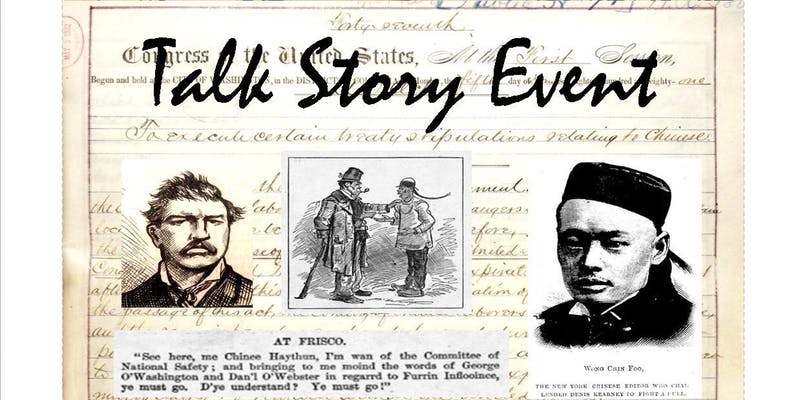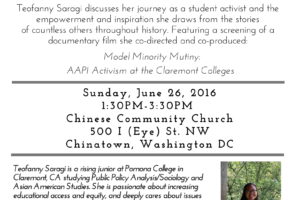On Wednesday, December 14, 2018, the 1882 Foundation had the pleasure of hosting a delegation of professors from China’s Hunan Mass Media Vocational and Technical College at Xfinity Chinatown. The College, located in Changsha, has nurtured thousands of mass media production professionals for Hunan Broadcasting System, one of the most influential and innovative state media groups in China.
The visitors were interested in American short documentary production and expressed an interest in viewing 1882 Foundation’s award-winning film Through Chinatown’s Eyes: April 1968 produced by Penny Lee and Lisa Mao. The film explores the position of Chinese-Americans in Washington, DC during the riots after Dr. Martin Luther King’s assassination. Louis Hicks, Director of Grants and Special Projects from the DC Humanities Council joined us, along with local Chinatown advocate Harry Chow, who was one of the individuals featured in the film. Tabitha Williams and Vera Zeng, representing Xfinity, welcomed the visitors.
After everyone settled in, there were some brief opening remarks and contextualization of the film before the screening. The screening was followed by a Q&A session with 1882 Foundation Executive Director Ted Gong and Harry Chow, where we discussed many issues regarding the production and significance of the film. The Q&A started off with questions regarding resources and funding gathered for the film. Many of the stories the film has is through interactions the 1882 Foundation has with the local Chinatown population. With the stories gathered, there was a larger narrative in place. From there, the 1882 Foundation decided to produce short films to tell these stories as episodes in a series called Through Chinatown’s Eyes. April 1968 is one of the episodes made by volunteers and professionals such as Penny Lee and Lisa Mao who volunteered their time and equipment researching and writing the story board, interviewing friends and relatives and gathering material from DC Public Libraries or DC Archives. The rights to use certain news clips and images had to be purchased from studios. The DC Humanities Council, Chinese American Citizens Alliance and Sino-American Cultural Society provided some financial help to a largely community volunteer effort.
The discussion then switched gears to the significance of the film regarding historic preservation and the Chinese American identity. With the prolonged gentrification of D.C.’s Chinatown and many of its original inhabitants moving to the suburbs, there were questions regarding whether the film serves as a token in memory of Chinatown or an active effort to save it. The 1882 Foundation believes that preserving spaces that stimulate storytelling is essential. It is an important element in a combination of common space, shared stories and interactive engagements that contribute to a person’s sense of individual identity and place in a community among people whether they are neighbors or not. Questions arose regarding the goal of 1882 Foundation in preserving “Chineseness” within Chinese American communities but, ultimately, someone’s individual sense of “Chineseness” or “Asianness” is determined by him or herself.
The preservation of a Chinatown or any other ethnic enclave serves many purposes. Among them are maintaining a distinct cultural destination for economic purposes and tourist promotion. This was certainly the stated purpose of several DC small area development plans and it is accomplished through zoning and permit requirements. They intend to keep or enhance certain physical characteristics of buildings and signs within a geographic space, and it is accomplished further by the businesses clustered there, particularly of food and types of shops. Another purpose is to establish and maintain a space that maintains and expands awareness of the culture and history –the stories of the community—that recount what made the neighborhood unique in the first place. This is concept of a “cultural touchstone” important to former residents and people with a cultural affinity to Chinatown and which was mentioned in the film. As Ted explained in closing the discussion, the confluence of commercial and cultural interests (epitomized in Xfinity’s support of local historical film screenings) is not just about being a good corporate neighbor in a business operating in Chinatown but it is also an essential partnership in the viability of a Chinatown community that must have buy-in by both commercial and cultural interests as well as of the support of Chinese Americans whether they reside in Chinatown or not.




